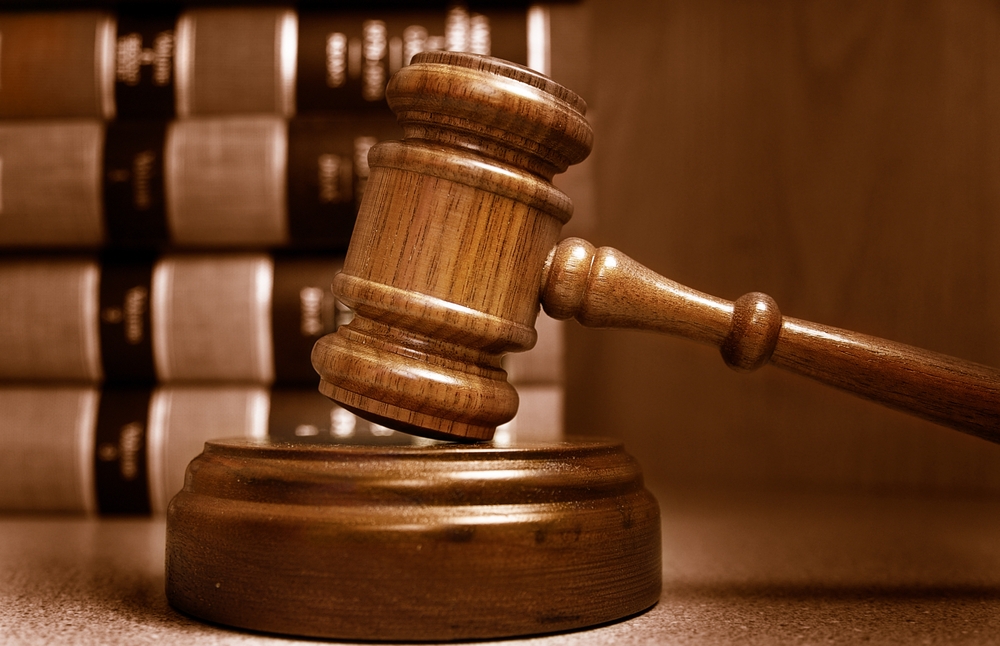By Ebuka Ukoh
Last week, the federal Court of Canada, presided over by Justice Sébastien Grammond, gave a ruling that has shaken more than one man—it has shaken the image of an entire nation.
Douglas Egharevba, a Nigerian who once belonged to both the People’s Democratic Party (PDP) and the All Progressives Congress (APC), was denied permanent residency in Canada. The court concluded that his association with PDP disqualified him, citing the party’s longstanding record of undermining democratic principles.
Ironically, his more recent membership in APC did not redeem him. [APC ex-Chair, Senator Adams Oshiomhole, must hear this!]
This verdict was not against an individual. It was a mirror held up to Nigeria’s political class, reflecting back to us the image we often refuse to confront: Our politics is broken, our democracy hollow, and our parties little more than shells for power without principle.
For decades, I have argued that we must stop borrowing the language of civics that does not reflect our reality. Canada’s verdict validates my position.
In Nigeria, APC and PDP are not ideological rivals; they are two wings of the same vulture. Power does not shift because ideas win. It shifts because the elite rebrand their alliances to maintain access to resources. Governors formed the “New PDP” only to merge with APC in 2015.
State parliaments defect en masse, depending on where the winds of patronage blow. Political heavyweights switch camps every election cycle, yet nothing changes.These are not political parties. They are platforms of convenience—transactional pipelines to power.
Canada has simply said what we already know but refuse to admit: This is not governance, it is opportunism.
In Finland, the Ministry of Education is also called the “Ministry of Education and Culture.” That pairing signals a deep truth: Education must flow from the soul of a people.
In Nigeria, our education still teaches “Government” as though we live in Westminster. We describe political parties as platforms of ideological contestation, when in reality they are pipelines of compromise and corruption. We teach “elections” without naming the realities of ballot box snatching, vote-buying, judiciary capture, and voter suppression.
We teach civic responsibility with no civic credibility. We teach history while sanitising [deodorising, really] our national sins. We teach character education while our leaders model moral decay.
If we continue to dress the wound of our democracy with imported bandages, the rot will only deepen.
This Canadian ruling is bigger than one man’s immigration case. It is a global indictment of Nigeria’s political culture:
That political affiliation in Nigeria can now render someone inadmissible in a democratic nation is a signal to the world.
That switching to the ruling party could not save him shows there is no meaningful difference between APC and PDP.
That our political brand has become a liability abroad should give every Nigerian leader pause.
Canada’s message is simple:
If your political methodology is faulty, your democratic claims cannot be trusted.
The indictment does not end there. In a related case, the same Canadian court denied permanent residency to a former Nigerian police officer, describing the Nigeria Police Force as an “evil force.” Two verdicts, two institutions, one message: Nigeria’s governance systems are exporting shame.
The wWarning wWe iIgnore is that the world is watching, and the evil being perpetuated by our elite will one day hunt them down. This moment is an echo of Martin Niemöller’s haunting words:
“First they came for the socialists, and I did not speak out—because I was not a socialist.
Then they came for the trade unionists, and I did not speak out—because I was not a trade unionist.
Then they came for the Jews, and I did not speak out—because I was not a Jew.
Then they came for me—and there was no one left to speak for me.”
For years, Nigerians have been told to “protect your votes.” Yet the elite control the menu of choices placed before us. They manufacture the ballot, rig the outcomes, and leave us performing democracy instead of practising it. “Go to court”
Beyond exporting oil and people, we now also export institutional shame.
The path forward is not cosmetic. It is not simply about elections. It begins with systemic electoral reform:
A new social and political dictionary written from Nigeria’s peculiar realities.
A civic education curriculum that confronts ballot-snatching, violence, and vote-buying—not to normalise them, but to empower reform.
Transparent electoral institutions that cannot be captured by the elite at will.
If we keep lying to ourselves, we will recycle the same fate for our children. If we hide from the truth, we will hand them a democracy built on sand.
This is why we must amplify voices like Randy Peters, who is courageously pressing for electoral reform. He is doing the Lord’s work by naming the truth that others avoid. If Nigeria is ever to press restart, it will be because people like him refused to let silence win.
Canada has blown the wind, and the skeletons are in full view. The world will no longer clap for our performance of democracy.
Now is the time to tell the truth to our children, to teach it in our schools, and to live it in our politics. The verdict is clear: Until Nigeria reforms its democracy, belonging to its political elite will remain a badge of shame, not honour.
Nigeria can win…and I believe it.
Ukoh, an alumnus of American University of Nigeria, Yola, and PhD student at Columbia University, writes from New York.



